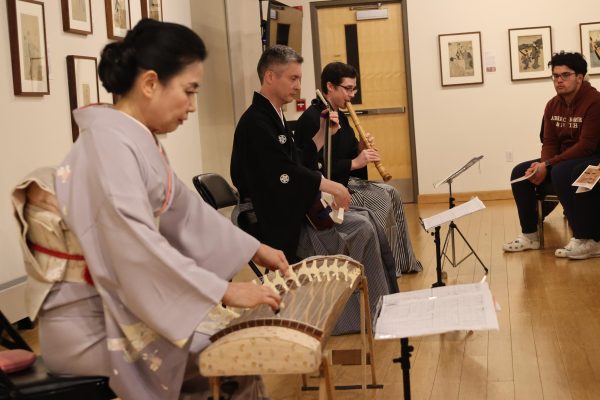Officials Trained to Combat Opioid Abuse
April 20, 2018
Campus Safety officers and Residence Life staff are trained to combat potential opioid overdose.
Participants in the Jan. 18 training session learned how to apply Narcan, which is a drug, administered as a nasal spray, to reverse or slow symptoms of opioid overdose.
“It’s an anti-opioid medication that gets administered if anybody were to be experiencing those symptoms,” said Robert Zavada, Director of Campus Safety and Security.
Participants also learned how to assess people they suspect may be overdosing. The assessment concerned specific symptoms that people intoxicated on opioids or other forms of intoxicants may experience.
“Officers and staff were trained to identify possible symptoms of things they may have observed if somebody had ingested an opioid drug. There were also refreshers on the differences between that, and what you might find with alcohol overdoses or other drugs not classified as an opioid,” said Zavada.
Assistant Dean of Students Callie Rimpfel said the training was helpful for emergency situations. Rimpfel’s role is to address student conduct issues, and she is on the university’s on-call rotation for emergencies.
“I think specifically for our job, I think being first responders to things, it’s helpful for all student safety,” Rimpfel said.
Rimpfel said the information helps staffers to know how to respond appropriately before, during and after the emergency.
“To respond appropriately, but not even just [to] get emergency help, but the care, concern and support after an incident,” said Rimpfel.
While there have been no cases of opioid overdose on campus, Zavada said the training is important just in case of the worst-case scenario.
“We have not had the opportunity, or we have not had the reason to administer Narcan on our campus,” said Zavada.
He said staffers need the knowledge because even ambulance personnel or other first responders to campus may not have had Narcon training.
“We can’t be blind to see what’s going on nationally and locally. So we thought it was a good idea to get everybody familiarized with this,” said Zavada.
Both Zavada and Rimpfel stressed that opioid abuse is a significant national and local problem.
One hundred, fifty-five people died from drug overdose in Luzerne County in 2017, according to a Jan. 22 article by Jennifer Learn-Andes of the The Times Leader. Victims ranged in age from 18 to 70.
“You never know what’s going to pop up on our campus, so I would rather be prepared. And also it helps us think in advance,” said Rimpfel.
Zavada said all people are potentially at risk.
“We recognize that it’s not just a student problem. However, we have a large population at the age group where traditionally people might think we’d be a higher risk group. But when we’re talking about opioids, it often times [involves] properly prescribed medications that are taken incorrectly. So it really has no boundaries,” said Zavada.
Rimpfel said she took note of the opioid problem during a Campus Ministry service trip in the Philadelphia area.
“I also went a service trip to Philadelphia through campus ministry, right after getting this training for this alternative spring break, and we dealt with the opioid crisis there. So how bad it is in Kensington Philadelphia, to think it two hours from here, is nuts to me,” said.






